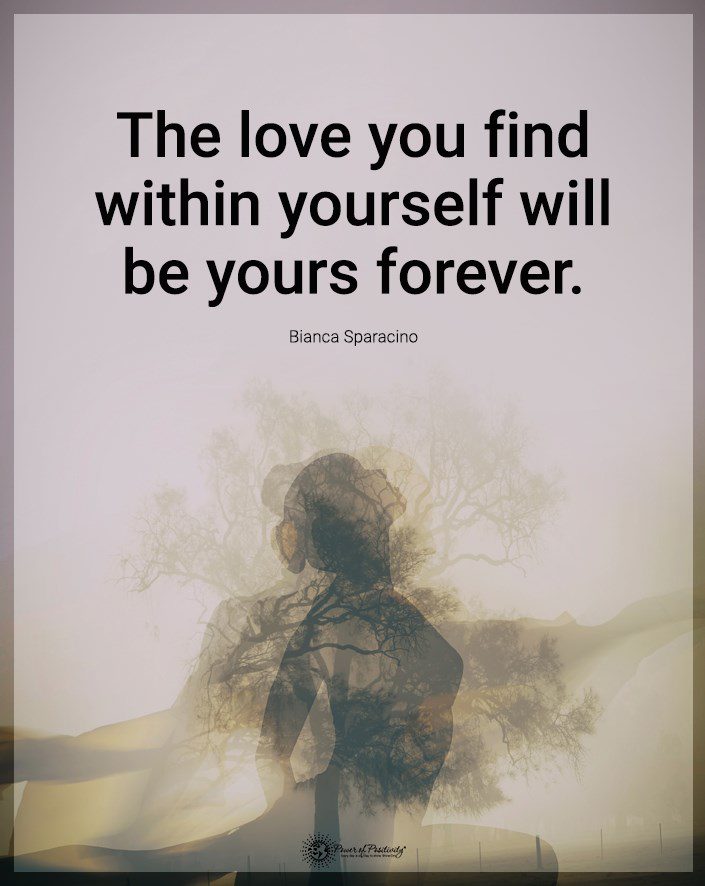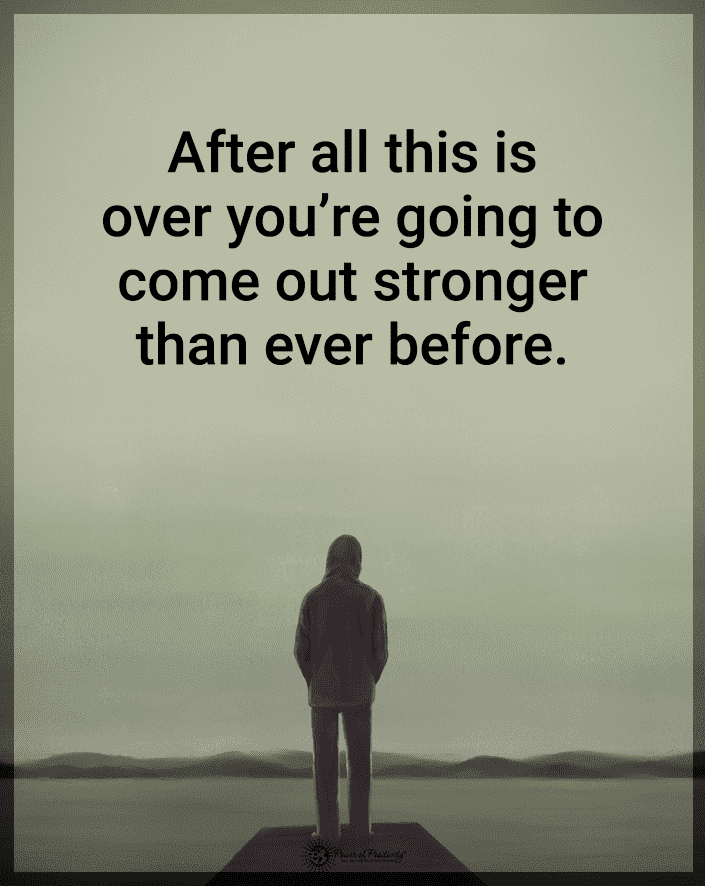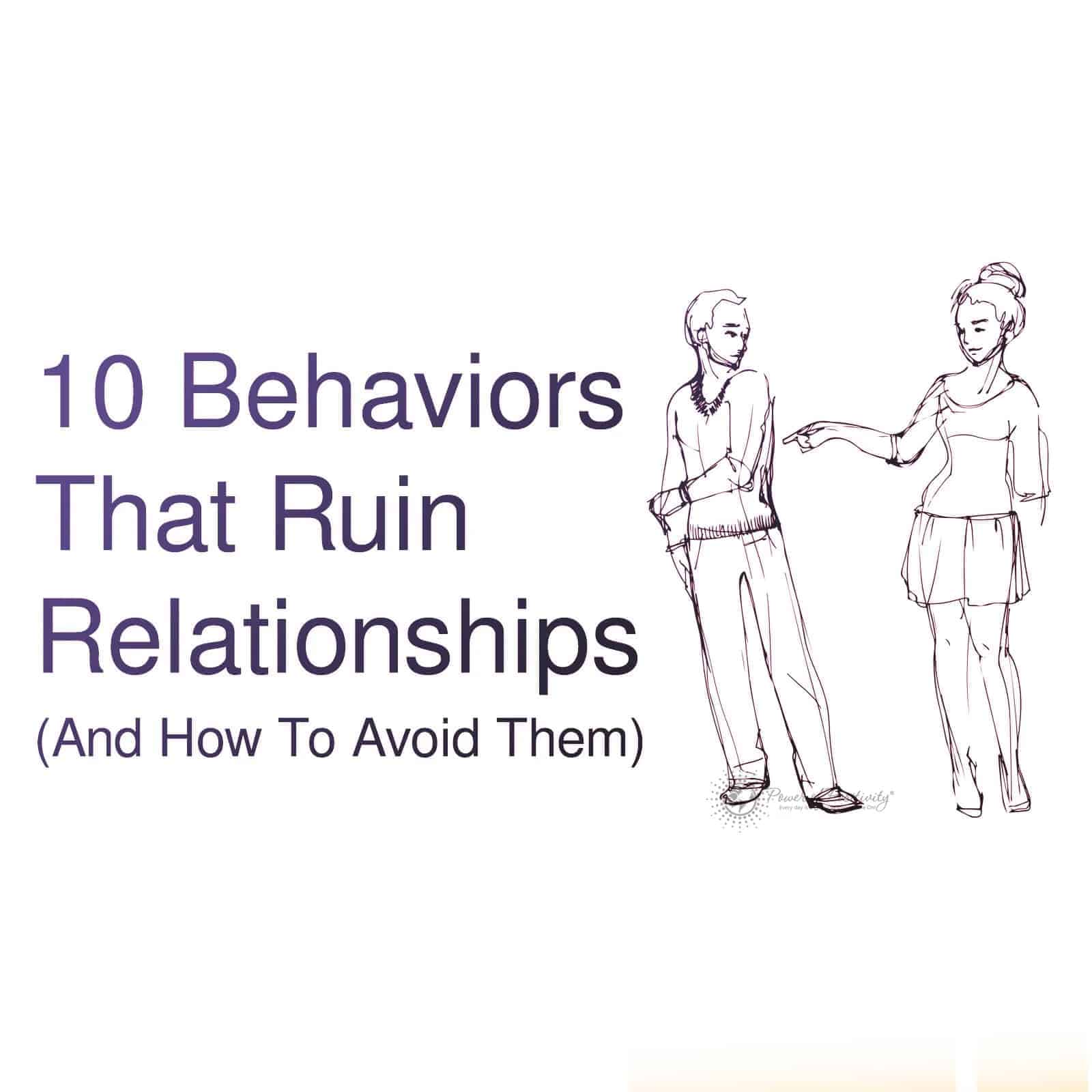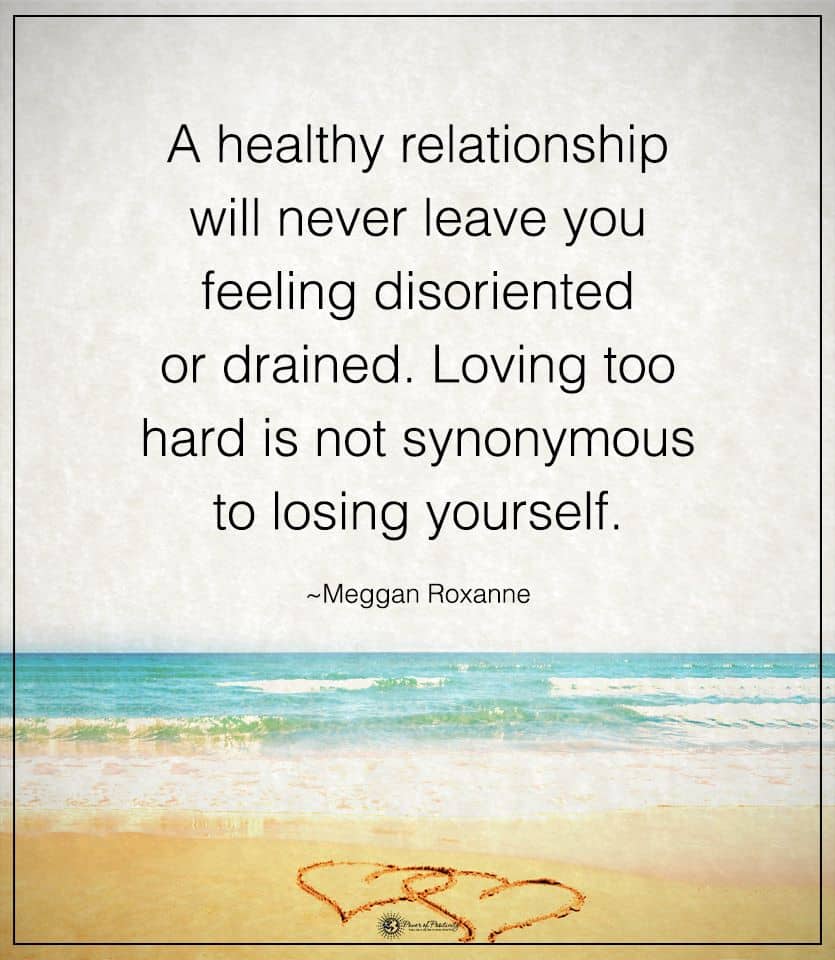We enter relationships in complete bliss and then hit a wall. We don’t know what’s happened, but things are not what they once were, and it feels wrong. The zest and juiciness of being in love has become a habit with all the stressors of life added in.
Here are 10 behaviors that ruin relationships (and how to avoid them):

1. Acting like you are single.
What defines a loving relationship? Two people! So when you act like you are still single, without consenting to your partner, then you are behaving like you do not commit to that person. When you are in a relationship, you must take accountability of that other person’s feelings.
Do you just pick up and go without considering your partner? Do you make plans without checking in? Or do you keep things from your partner that you know would not be considered righteous to a union?
If you cannot commit to a relationship, then let that person move on. You cannot keep holding on to the single life while enjoying the benefits of having someone in your bed. You must be honest with that person and with yourself.
So do you want to be single? Be single. If you want to commit to a loving relationship, then take accountability for your actions.
2. Only being financially responsible for yourself.
Money issues are a huge challenge in relationships. When you go around spending as if you are the only one in the union, things begin to fall apart. This goes back to acting like you are still single. You have a responsibility to your mate to partake in the expenditure.
If you are only considering yourself, then you might as well stay single.
3. Having no other interests.
It’s just as damaging to act single as it is to be strapped to someone all the time. You do not have to partake in every single thing your partner does. You need your own life, friends, interests, hobbies and alone time. This borders on co-dependency.
Dr. Seth Meyers, author of Overcome Relationship Repetition Syndrome, says: “In a push to fuse with their partner, some people will forget about their own interests, hobbies and goals—things that may have attracted their partners in the first place. To break codependency’s false bond, make a list of how and with whom you spent your free time prior to your relationship—a worthwhile exercise. Try monitoring the amount of alone time you have, as no couple should be spending all their free time together.
Pursue an activity on your own, such as going to the gym or take a fun class at your local community college. If you’ve lost touch with friends you genuinely care about in favor of spending time almost exclusively with your partner, regain your identity by making an effort to meet a friend or two for an activity or a meal.”
4. Being overly sensitive and insecure.
Nothing hurts a relationship more than feeling unworthy. Insecurity leads to jealousy. It’s hard to trust your partner if they aren’t acting trustworthy. If this is the case, you must put yourself first and foremost and end the relationship. But, if your partner is not doing anything and you continue to live in the memories of past relationships, then you are the one who needs to straighten up. Insecurity is damaging. It begins to create a web of lies through stories.
Take accountability for your behavior. If you want to cherish and keep your present relationship, it’s time to release the past. You no longer live back there!
5. Rolling your eyes, being ultra sarcastic, and not honoring your partner.
We all like a bit of wit and humor, but when it borders on disrespect and nasty behavior, it is abusive. This behavior escalates into being on the defensive and hurting your partner. Walls start going up and the relationship suffers because it is based on meanness and not kindness. There is nothing wrong with comedy and pushing each other’s buttons to get a fun rise. However, when it’s constant, it becomes demoralizing and hurtful. Make your partner is aware of this behavior.
If it’s you, please step back and realize that you are not being funny but inhumane. Sarcasm can be a form of deflecting insecurities.
6. Lack of affection.
Just as being together is too much, lack of affection in a relationship is damaging. Relationships can fall into a rut after a while, but it’s important to keep the magic going. Continue to touch each other in gentleness, kiss each other as you leave the house, and send kind messages throughout the day. No affection is a sign that things have grown apart. If you want to rekindle the relationship, then you must take initiative.
The longer you let things dwindle, the harder it is to reignite the fire. Cuddling, hand holding, and hugging are simple ways to reintroduce the love you once shared.
7. Texting or being on your phone instead of communicating with your partner.
Social media and technology have been incredible asset to our society. However, it is also the death of many relationships. Two people live in the same house and rarely speak to one another. There is a lack of communication. Put the phone away, turn off the computer and sit together to have a meal, or take a walk around the block. Make time to share the things from your day. Your social status can wait an hour or two. It’s not going anywhere, but your partner might vacate the property if you don’t start to give him/her attention.
8. Nagging.
Something so insidious about a repetitively unpleasant sentence forces us to do nothing. Nagging is a kill-joy in a relationship. The Wall Street Journal did an article on nagging a few years back titled Meet the Marriage Killer.
It states: “Nagging—the interaction in which one person repeatedly makes a request, the other person repeatedly ignores it and both become increasingly annoyed—is an issue every couple will grapple with at some point. While the word itself can provoke chuckles and eye-rolling, the dynamic can potentially be as dangerous to a marriage as adultery or bad finances. Experts say it is exactly the type of toxic communication that can eventually sink a relationship.”
The best way to end nagging is to address the issue. Make your partner aware you have heard the request, which will be addressed. This way it stops the negative statements.
9. Compulsive behaviors.
When we are unhappy, we reach for something or someone else. These compulsive behaviors are red flags in relationships. If you are spending your time shopping, overindulging on food or alcohol, or even checking out the porn sites daily, you have reached a level of disregard for your partner. You need to own up to this behavior and share with your partner what is causing you to exercise these events. Validate your feelings. Being vulnerable is a matter of courageously taking steps to fix your relationship, because substituting your need for love will not end well.

10. Dishonesty.
Dishonesty is the death of a relationship. You don’t belong in that relationship if you can’t trust the one person you believe has your best interest. Whenever you feel unappreciated, distrusted, and unloved, you are entertaining the darkest parts of your psyche. You are not putting yourself first. You have abandoned ship and have left another to take over. If you don’t trust your partner, step back and ask a simple question: Why?
Has this person caused you to question your worth? Is he or she cheating? Why would you tolerate this from the person closest to you? Dishonesty shows up to provide an opportunity to decide your life. If you are the one being dishonest, then find a way to break the cycle. Let that person go. Being honest with yourself is freeing. You must choose to travel life on a righteous path.


















